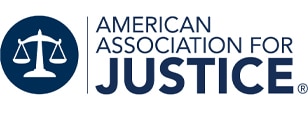
COOK, p.c. is strictly a plaintiff’s civil litigation firm headquartered in Atlanta, Georgia. Our team of trial lawyers has tried and won cases all over the country.

Call Us For A Free Consultation
Various federal laws protect whistleblowers. For example, the False Claims Act (FCA) protects employees who are retaliated against for disclosing fraud against the government. The Department of Labor (DOL) administers fifteen whistleblower provisions that protect employees who disclose information about violations of laws pertaining to airline, trucking, nuclear, environmental, rail and workplace safety. The Dodd-Frank Act protects whistleblowers who report violations of securities laws to either the SEC or Commodities Futures Trading Commission. The Act also protects employees who report fraud relating to a consumer financial product or service to the Bureau of Consumer Financial Protection. Federal employees can pursue a retaliation claim under the Whistleblower Protection Act (WPA), which prohibits federal agencies from retaliating against federal employees who engage in whistleblowing activities.
In addition, Congress recently enacted whistleblower protections for contractor employees and employees of state and local governments to safeguard against fraudulent spending of stimulus funds.
Employees alleging whistleblower retaliation against an employer should retain experienced counsel as soon as possible because many whistleblower retaliation claims have a short statute of limitations.
Whistleblower protection laws generally cover a broad range of protected disclosures, including providing information to a supervisor or government agency that the whistleblower reasonably believes shows proof of:
A violation of law, rule or regulation;
gross mismanagement;
gross waste of funds;
an abuse of authority; or
a substantial and specific danger to public health or safety.
To be successful under most whistleblower retaliation laws, an employee must prove the following:
That they engaged in protected activity;
That the employer knew that they engaged in protected activity;
That the employer took an adverse personnel action against them; and
That the protected activity contributed to the employer’s decision to take the adverse action.
Under many whistleblower protection laws, a prevailing employee can recover back pay for lost wages, front pay for future lost wages, compensatory damages, and litigation costs, including attorney fees. Under some whistleblower protection laws, a prevailing employee can obtain exemplary or punitive damages.
If you believe that you have been denied overtime or that your employer has committed some other violation of the wage and hour laws, you don’t have to file an EEOC claim as you would in a typical discrimination case. Instead, you can hire a private attorney and file suit as soon as you discover the violation. If other people at your company have also been denied overtime, you may be able to file a special type of FLSA class action, known as a collective action, which will help you bring the maximum pressure to bear on your employer to change its ways and to pay you all the compensation you are owed.
Also, unlike the discrimination laws, the FLSA has a much longer statute of limitations—you have two years to file suit for most violations and three years if your employer’s violation of the law is willful. Your damages can include all back wages (which includes any unpaid overtime), plus an amount equal to your unpaid back wages, interest, attorneys’ fees, and court costs.
The FLSA is an extremely complex statute; there are hundreds of pages of rules and regulations covering the exemptions and other aspects of the law.






COOK, p.c. is strictly a plaintiff’s civil litigation firm headquartered in Atlanta, Georgia. Our team of trial lawyers has tried and won cases all over the country.